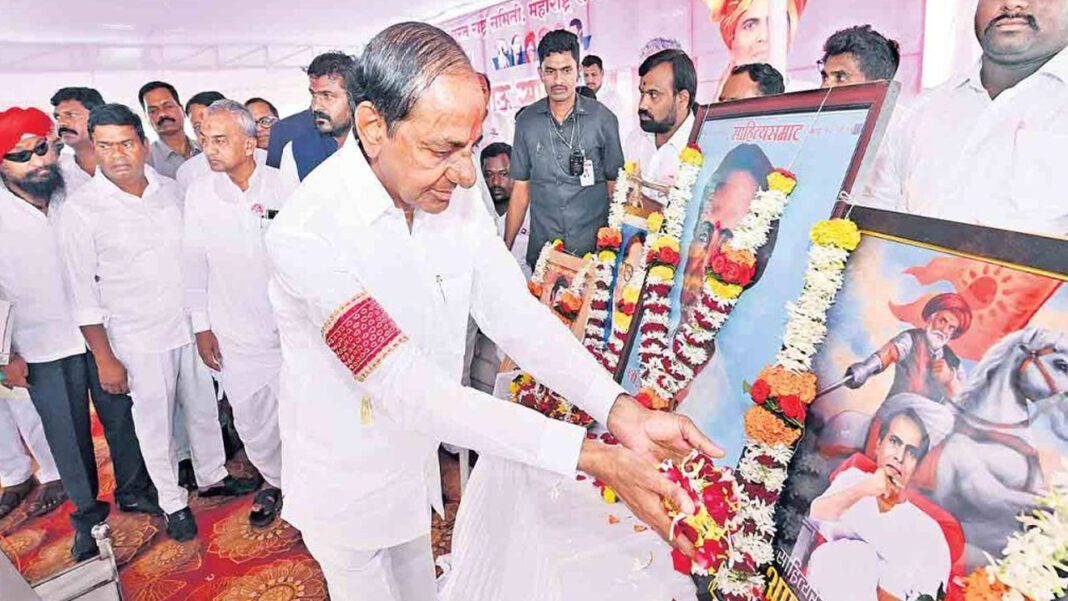Who is Annabhau Sathe, for whom the BRS president and Telangana Chief Minister K Chandrashekhar Rao sought conferment of Bharat Ratna award?
Annabhau Sathe, also known as Tukaram Bhaurao Sathe, is recognized as the ‘founder of Dalit literature.’ His works focus on powerful condemnation and brutal attack on caste and class differences, influenced by Ambedkar’s ideology. Born into the Dalit community in Maharashtra, poverty and caste discrimination deprived him of formal education. He engaged in various labor jobs before becoming a mill worker, where he was drawn to Communist ideology.
Sathe’s literary contributions include 35 novels, 10 folk dramas, 24 short stories, 10 ballads, one play, and a travelogue, with many more unpublished. The dominance of Brahminical art overlooked Dalit art and culture. American writer Eleanor Zelliot notes that low-caste art forms were produced but remained anonymous and disregarded.
In 1944, Sathe co-founded the ‘Red Flag Performing Troupe’ and devoted himself to propagating the communist party. His writings fostered class consciousness among workers, highlighting the struggles of factory workers and disparities in Mumbai.
Sathe’s personal experiences shaped his writing, which focused on daily realities, caste/class struggles, and social interactions. A blend of Marxism and Ambedkarism, he praised Lenin and Ambedkar in his works. He also defied oppression by renaming Tamasha to Loknatya.
Communism fascinated Annabhau Sathe and his travelogue, Maza Russiacha Pravas (My Journey to Russia), that he wrote on his visit to the Soviet Union in 1961 as representative of Indo-Soviet Cultural Society, was well received. He tried to portray as to how anti-USSR propaganda was misleading. Some of his works were already translated into Russian, Czech, Polish and German languages and he was well-received in the USSR.
In his award-winning novel ‘Fakira,’ the protagonists reclaimed their identity and emphasized forgiveness for communal harmony.Sathe dedicated the state award to Ambedkar. He featured women protagonists in works like ‘Chitra,’ challenging patriarchy and fighting against the British.
Sathe inaugurated the first Dalit Sahitya Sammelan, delivering a powerful speech on the importance of Dalit and worker contributions to society. His poetry depicted the struggles of lower classes and castes, inspiring oppressed groups to break free from class and caste chains, guided by Ambedkar’s teachings.
Sathe played a significant role in India’s labour and freedom movements, advocating for labor rights and awareness. He actively participated in the ‘United Maharashtra Movement’ and composed a compelling song, ‘Majhi Maina Gawawar Rahili,’ symbolizing Maharashtra’s unity with Mumbai.
Despite his remarkable contributions, present-day Communists and Ambedkarites tend to ignore him due to his caste and political inclinations. However, his poetic brilliance remains unmatched, making him a legendary figure beyond imagination.




